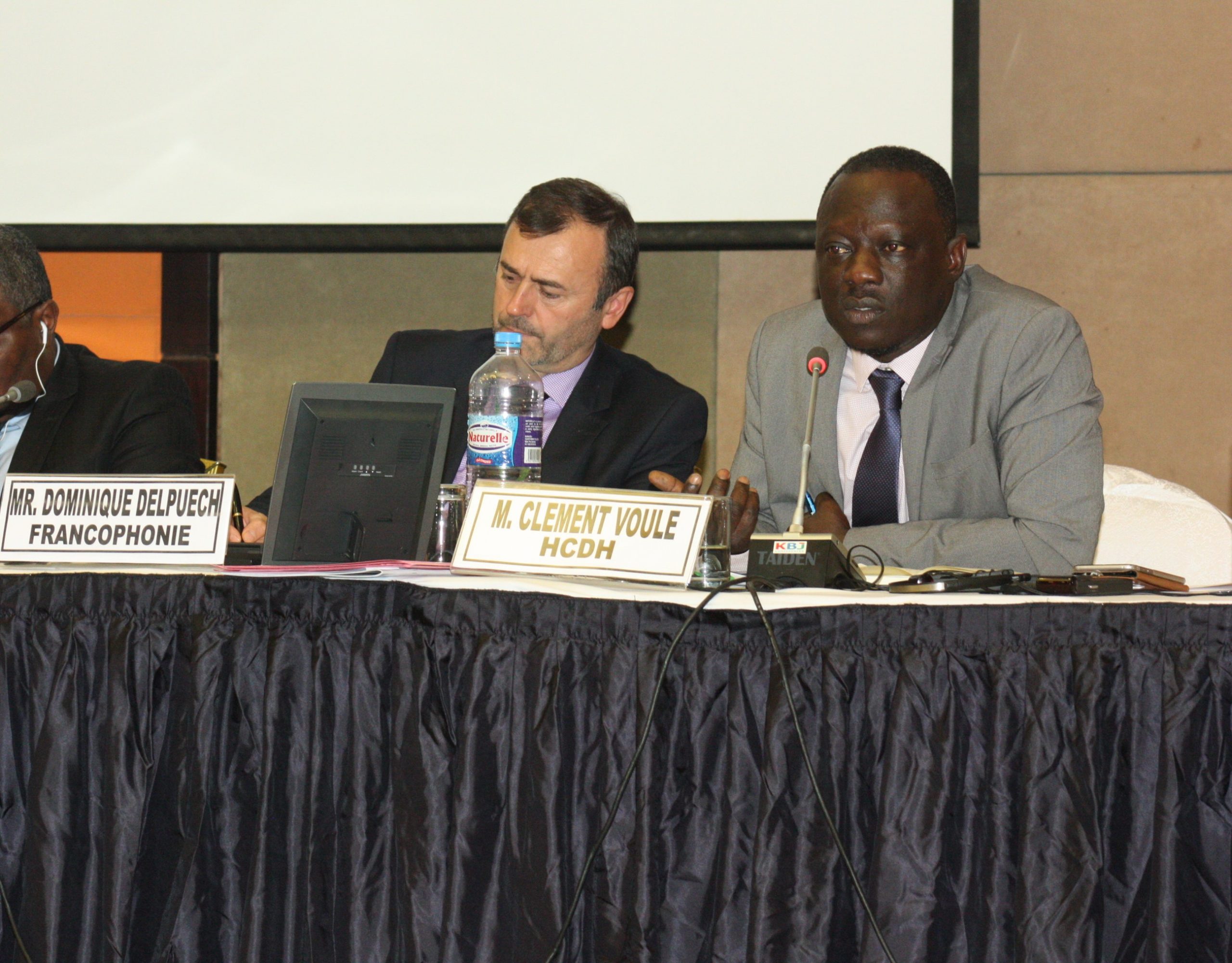On 26 October 2018, the African Commission organised a panel to launch the State reporting guidelines and the newsletter on extractive industries, the environment and human rights created by the working group. Following this panel, a side event was organised by the working group to familiarise States, as well as civil society, to the guidelines which were adopted during the 62nd session of the African Commission.
Under article 62 of the African Charter, States are required to submit every two years reports on the measures taken to guarantee the rights and freedoms recognised by the Charter. These guidelines include all the necessary tools States need to have a better understanding of the information expected of them when fulfilling their reporting obligations as it relates to extractive industries within the scope of articles 21 and 24 of the Charter. Indeed, States rarely report on the measures taken to ensure these provisions are nationally respected. These guidelines will also enable the Commission to rectify the existing gaps in State reports by strengthening its monitoring capacities on the issues specifically related to extractive industries, the environment and human rights.
These guidelines were drafted over a two years period and involved consultations across Africa with a wide range of stakeholders including State Parties to the African Charter, National Human Rights Institutions (NHRIs) and civil society organisations.
During the side event, members of the working group explained the purpose of the guidelines, their content and the role of each actor.
‘It is important that States ensure the respect of human rights in all activities of extractive industries. In any case of violations, there should always be a system of compensation in place. All these data should be provided by States in their periodic reports, as indicated in the guidelines,’ stated Commissioner Jamesina E.L. King.
The guidelines are intended to improve the information reported by States and make them focus on an area too often subject to secrecy and lack of transparency. ‘It is one thing to adopt the guidelines. But the real work starts now. It is vital that the African Commission encourage and support States in fulfilling their obligation included in these guidelines,’ added expert member Erick Kassongo. A lot of effort has been put in the writing of this document. It is important that all stakeholders including civil society, NHRIs, the African Commission and States work together to ensure the implementation of the guidelines.
The document showcases best practices with respect to the use of natural resources and the rights of people. Chapter IV, point 42 specifically mentions that ‘Human rights defenders who speak out and advocate for measures to ensure the respect of human rights must be able to assist affected people without fear of reprisals from the government or the company involved in extractive industries and the State should ensure that there is no impunity for threats, attacks and acts of intimidation against those advocating for the rights of affected communities, irrespective of their designation as human rights defenders, including women human rights defenders.’ Additionally, chapter V listing the obligations of States, in its point 55 provides that ‘States should enable advocacy for rights and that there should be protective measures in place for human rights defenders and members of affected communities to exercise and advocate for their rights’.
Through these provisions, the guidelines reaffirm the vital role played by defenders when it comes to holding extractive industries accountable for their human rights violations.
Contact: Adélaïde Etong Kame, Africa Advocacy Consultant, [email protected]
Photo:ACHPR




